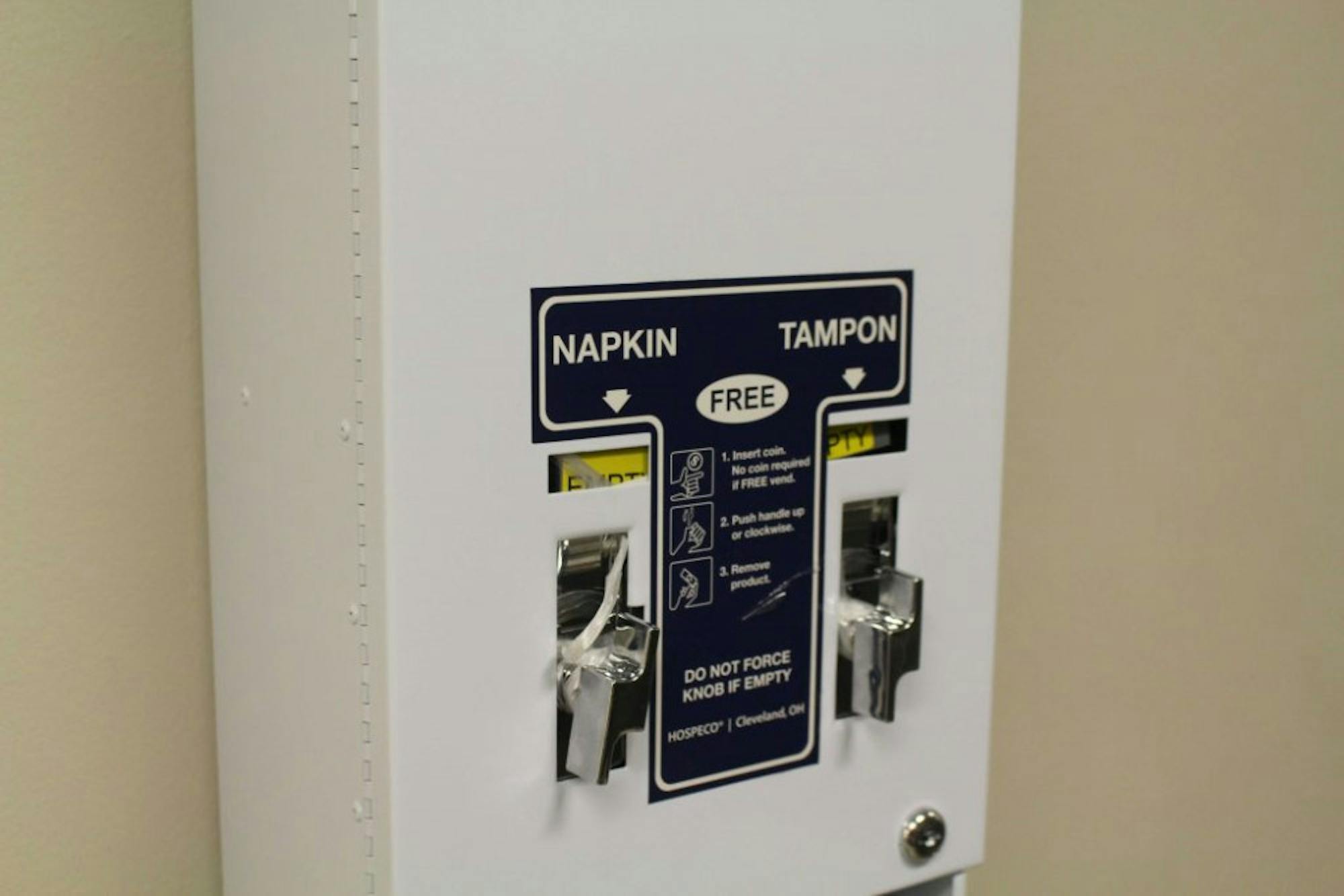Emory University launched the Free Menstrual Project Initiative this fall, which installed free tampon dispensers in all bathrooms across the Atlanta and Oxford campuses starting July 2021. Since then, all 1,264 dispensers have been fully installed.
The installation is a result of five years of student planning, which began when graduate students circulated petitions in 2016 and several pilot programs launched in an effort to make change.
In 2019, Atlanta SGA collaborated with the Oxford SGA and a few key administrators to bring about lasting change. The University installed five dispensers on the Atlanta campus in Dobbs Common Table and Cox Hall in a 2019 pilot program, and several more were installed in the Oxford Student Center.
SGA President Rachel Ding (20Ox, 22B), who was president of Oxford SGA when the initiative began, has been heavily involved in this effort ever since the bill first passed in 2021.
“This was the first time we had permanent free dispensers,” Ding said. “These items are as essential as toilet paper or napkins, so we worked with Business Residential Services to constantly stock [the dispensers].”
The pilot program was a success, and through continued work with administrators and Building Residential Services staff in 2020 and 2021, the SGA made the permanent program a reality.
Ding explained that the initiative provided a “necessity” at no cost for Emory community members.
“We’re not providing a luxury service; these are essential products,” Ding said. “It’s helping community members who are experiencing period poverty.”
“Period poverty” refers to inadequate access to menstrual products stemming from financial barriers, stigma and a lack of education. A 2021 BMC Women’s Health study found that this inequality affects one in 10 college students.
The study, based on a sample of nearly 500 students enrolled in undergraduate programs, also found that period poverty disproportionately affects Black, Latinx, immigrant and first generation students. Affected students were more likely to experience depression and take time off from school due to their periods.
The machines have been placed in men’s bathrooms as well as women’s, in an effort to serve the menstrual needs of transgender and nonbinary people, who are often overlooked in discussions of menstrual equality.

David Forbes, the Associate Vice President of Facilities Management and key contact for SGA regarding this initiative, explained that all administrators, involved students and community members were on the same page regarding this decision.
“This program's goal is going to be universal, so that means access wherever you are regardless of identity,” Forbes said. “The fundamental point of this program is to provide menstrual equity and equal access to basic sanitation tools, so we were going to equitably apply it.”
SGA has received supportive feedback regarding the initiative, Forbes said, noting that many community members feel that it has built a more inclusive environment.
“This is an all gender issue, and it’s not just specifically females that need to use these products,” Joel Schmitz (22G) said. “It makes non-binary and transmasculine people feel a lot more comfortable knowing that the community is looking out for them and having these resources for them to use at their disposal.”
Layla Aberman (22C), president of Emory Pride, further emphasized the positive effects that they believe this decision will have on the Emory community.
“[This initiative] makes it clear that Trans students are just as important as every other student and deserve the same necessary resources that every other student is provided,” Aberman said. “It should be as simple as if someone needs a tampon, they’ll have access to one.”
The dispensers are currently empty because a napkin disposal process needs to be implemented prior to the dispensers being stocked, according to Facilities Management. The disposal units are set to be installed and the dispensers stocked by the end of next week.








